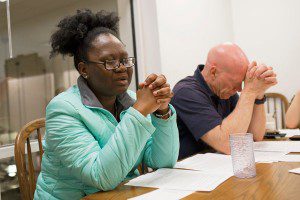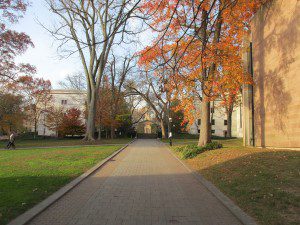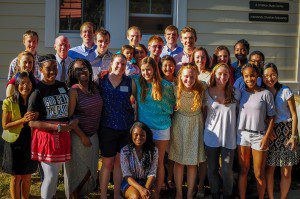 This one took me aback–the New York Times just published a lengthy piece on the disenfranchisement of InterVarsity Christian Fellowship at my alma mater, Bowdoin College. The piece is poignant, quite fair, and at around 1,200 words ranges over other campuses as well, showing how there is a definite thread connecting Vanderbilt to Bowdoin to Cal State to other schools.
This one took me aback–the New York Times just published a lengthy piece on the disenfranchisement of InterVarsity Christian Fellowship at my alma mater, Bowdoin College. The piece is poignant, quite fair, and at around 1,200 words ranges over other campuses as well, showing how there is a definite thread connecting Vanderbilt to Bowdoin to Cal State to other schools.
For the background to this situation, see my piece entitled “God and Sexuality at Bowdoin” in The American Spectator. This is actually the second time the Times has referenced the Bowdoin situation, as Ross Douthat wrote a piercing analysis some months back. Here’s a swatch from today’s piece:
The consequences for evangelical groups that refuse to agree to the nondiscrimination policies, and therefore lose their official standing, vary by campus. The students can still meet informally on campus, but in most cases their groups lose access to student activity fee money as well as first claim to low-cost or free university spaces for meetings and worship; they also lose access to standard on-campus recruiting tools, such as activities fairs and bulletin boards, and may lose the right to use the universities’ names.
“It’s absurd,” said Alec Hill, the president of InterVarsity, a national association of evangelical student groups, including the Bowdoin Christian Fellowship. “The genius of American culture is that we allow voluntary, self-identified organizations to form, and that’s what our student groups are.”
I could not agree more with Alec Hill, and I hope that the administrators of Bowdoin will, even at this late date, turn back the college’s unfair actions. The man seen above in prayer, Rob Gregory, is a dear friend of mine, an excellent college fellowship leader, and a faithful witness of Christ. Gregory is like many IVCF volunteers in that he and his wife, Sim, sacrificially devote dozens of hours each week to the fellowship. Because he is a busy attorney in Maine, Gregory works at Bowdoin without a salary. Rob and Sim love the students of Bowdoin College; it is truly shocking that they can no longer work in an official capacity at Bowdoin. I grieve for my alma mater.
By the way, one more word on the “discrimination” charge against Gregory and Bowdoin Christian Fellowship: this characterization is untrue. BCF “discriminates” in choosing its leaders the same way the Muslim Student Association chooses its leaders according to its doctrine. One must distinguish between pejorative discrimination–not allowing someone to be in leadership based on non-objective grounds–and non-hostile discrimination, meaning simply the ability to select organizational leaders based on objective criteria. BCF does not allow students practicing homosexual acts to serve as leaders. But this is not pejorative; this decision fits the doctrine of the Bible, and thus of BCF, and is part of BCF’s rights of association and free speech. All this Bowdoin is compromising at present.
Sadly, this trend continues to spread in America. The college campus is the laboratory for our society. It sets the tone for what is to come. I pray that the persecution Bowdoin Christian Fellowship–the group I was a part of for four years, and served in multiple capacities–has encountered at Bowdoin will not spread elsewhere. Whatever the case, these are sobering days, and I am thankful for the coverage provided by the Times.
***************
(Photo: Katherine Taylor/NYT)











